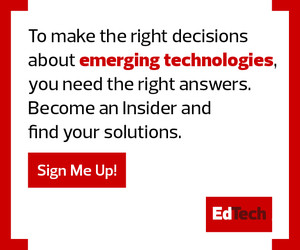Supplement Instruction with High-Quality Digital Curriculum
This is where educational technology can help personalized learning become a reality. By integrating a digital curriculum, schools can support the acceleration of student learning. Instead of rushing some students through the curriculum or repeating the same information to advanced students, a digital curriculum can help individual students engage with their most critical work as efficiently as possible.
With direct instruction, practice and formative assessments, a high-quality digital curriculum can accelerate learning by providing standards-based instruction that meets students where they are.
DISCOVER: Why bold schools use technology to support pedagogy.
A 2021 study from Zearn, a nonprofit organization that runs an online math platform for elementary students, confirms the value of acceleration.
In its report “Accelerate Don’t Remediate: New Evidence from Elementary Math Classrooms," Zearn found students who experienced learning acceleration struggled less and learned more than those who experienced remediation. Further, learning acceleration can be especially effective for students from underserved communities.
Supporting Student Achievement Must Include Supporting Teachers
Time and time again, research demonstrates that teachers have the greatest influence on improving achievement and learning outcomes for all students. According to “Teachers Matter: Understanding Teachers’ Impact on Student Achievement,” a 2019 report from RAND, the author estimates that effective teachers have two to three times the impact on student achievement compared with any other school-related intervention.
DIG DEEPER: How advanced tech opens doors for K–12 students.
For school leaders dedicated to fostering a culture of learning that drives learning outcomes, supporting teacher learning is essential. School leaders must offer instructional leadership to teachers, including the support and professional development for digital initiatives that hold the promise for student success. Teacher learning must be intentional and ongoing to address the critical issue of student achievement.
Intentional Actions Can Ultimately Reduce Learning Loss
The past few years have been difficult for schools, but we can help our students rapidly bounce back from pandemic-related learning loss. To do so, educators must take intentional steps to innovate and transform their practice and share their insights with others while putting students at the center of learning — and we can ensure educators have access to the research and resources they need to drive academic achievement. After all, effective teachers are central to amplifying student learning and promoting academic success.
UP NEXT: How professional development increases teacher confidence.











